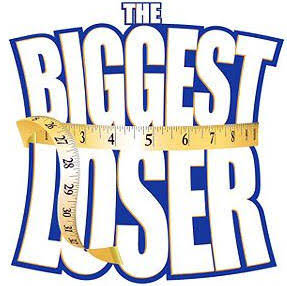“The Biggest Loser” is an American reality TV show that has aired on NBC since 2004. The show documents a group of overweight and obese individuals who compete to lose the most weight within nine months. At the beginning of each season, the contestants are split into three teams. During each weekly weigh-in, the team that fails to meet a weight loss goal (dubbed the yellow line) is forced to vote a member of the show. As the number of contestants dwindles, the show turns into an individual competition. Finally, the contestant who loses the most weight is “honorably” crowned “The Biggest Loser” and earns a cash prize of a quarter of a million dollars.

After fourteen long years, however, “The Biggest Loser” has come to an end in early July. The program faced legal troubles after an allegation that the show’s doctor, Robert Huizenga, fed contestants Adderall and pills with ephedra extract for further weight loss. However, even before the recent lawsuit, “The Biggest Loser” fell under much criticism.

First, the show continued unhealthy weight loss practices according to https://www.diet-blog.com/09/the_biggest_loser_dangerous_weight_loss.php. In order to lose the most weight, contestants would starve themselves and exercise excessively. The use of the aforementioned drugs for weight loss was the step that finally crossed the line. Overall, the show refused to capture the adverse effects of its recommended weight loss procedures; according to http://www.feministe.us/blog/archives/2009/11/25/shocker-the-biggest-loser-promotes-unhealthy-weight-loss-practices/, the show intimidated previous contestants from speaking out negatively about the show. During a season, many contestants would lose over a hundred pounds. The show, however, did not mention that the Center for Disease Control and Prevention (https://www.cdc.gov/healthyweight/losing_weight/index.html) recommends that people lose only about 1-2 pounds per week.
In fact, the producers did not even include the aftermath of the show–the fact that most contestants would gain back all, if not even more, of the weight that they had lost. For instance, according to https://healthyeater.com/biggest-loser-then-now, Ryan Benson, the first winner of the show, went from weighing 330 pounds to 208 pounds in one season. However, less than ten years later, he was 300 pounds again. Benson even mentioned that he had gained 32 pounds in five days simply by drinking water. Ryan’s story epitomizes the adverse and impact of participating in the show.

Second, “The Biggest Loser” perpetuated a false and negative stereotype of overweight individuals according to http://articles.latimes.com/2012/jan/13/news/la-heb-biggest-loser-fat-bias-20120113. The LA Times article covers a study, which found that participants’ anti-fat attitude increased after they watched an episode of “The Biggest Loser.” The study cites that the show spreads the message that people are fat due to lack of self-control, which is not always the case. Having watched obese people successfully lose weight, the participants began to blame fat people for their own condition. The study evidences that the show depicts fat people in a negative light. In fact, the show literally dubs the winner of the contest “The Biggest Loser.”

Some may argue that “The Biggest Loser” shows that overweight people can change their lives as well. However, the effects are typically only temporary due to the unhealthy weight loss practices as covered above. Also, the fact that producers try to tempt participants into indulging reveals that the show’s primary intentions are for entertainment.
The ending of “The Biggest Loser” is a chance to reflect upon the messages that pervade our media regarding weight. In television and cinema, fat characters are often made fun of for their physical appearance. Many characters are defined by their love of indulging in food and portrayed as “losers.” A classic example of this stereotyping can be seen in the popular movie, “Pitch Perfect.” One of the characters is called “Fat Amy” to provide the audience with humor. Ultimately, “The Biggest Loser” was only one of the many harmful sources of media that still circulate and influence society.
CDC Statistic: https://www.cdc.gov/healthyweight/losing_weight/index.html
Ryan Benson Statistic: https://healthyeater.com/biggest-loser-then-now
Initial News about “The Biggest Loser” Cancellation: http://www.aceshowbiz.com/news/view/00111601.html

Sparky Yoo
Junior
Phillips Academy
By Sparky Yoo

